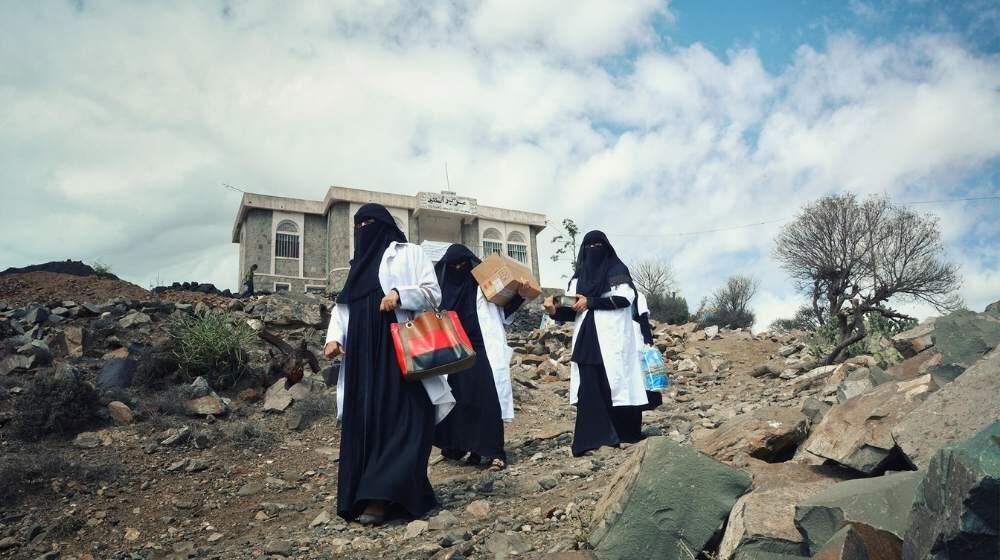Sexual, reproductive, maternal, newborn and adolescent health (SRMNAH) is an essential component of the Sustainable Development Goals. The Arab region has a total of 1.35 million SRMNCAH workers, of whom two-thirds are nurses without formal midwifery training. Improving this component requires increased commitment to, and investment in, the health workforce, primarily midwives as they play a pivotal role.
Midwives provide essential care to pregnant women, mothers and newborns in humanitarian settings and some of the world’s most difficult conditions. Yet, they often lack the support they need to save lives, including essential medicines, communication and transportation networks and a health system that enables them to provide emergency obstetric care.
The Arab region has a shortage of 128,000 midwives and gender inequality is an unacknowledged driver in this massive shortage. The continued under-resourcing of the midwifery workforce indicates that health systems do not prioritize the sexual and reproductive health needs of women and girls, and do not recognize the role of midwives to meet these needs.
Giving birth safely, comfortably and conveniently at home or in clinics should not be a luxury, but a basic human right. Midwife- led reproductive and maternal care should be considered a central element to all health systems at all times, especially during times of emergency and in situations of fragility.
UNFPA applauds the work of all midwives, and we pledge to stand by them, working with all partners to protect them and as a tribute to their unseen efforts, we are bringing you success stories of midwives; the unsung heroes of maternal health.
Midwives save lives through thick and thin
Halimo Hadi, a midwife from Somalia, is always willing to go beyond her call of duty to provide quality midwifery care to women and newborns. She works at Dilla hospital that receives a lot of complicated cases on a daily basis. Samsam*, 38 weeks’ pregnant with her seventh baby, was bleeding heavily and trembling in fear when she arrived at the hospital. Fortunately, Halimo was able to save the mother by inserting an intravenous fluids line, and then she arranged an emergency transfer to the regional hospital. At the regional hospital, Samsam received a blood transfusion and gave birth safely. She and her baby left the hospital in good health one week later.
During the pandemic, midwives are at the frontlines supporting women
Rahma Al Omari, a compassionate midwife who started her journey with UNFPA in 2018 in Azraq refugee camp clinic in Jordan. Rahma treats her patients like members of her own family “A midwife to me is a protector, a mother and a caregiver to both the mother and her precious child.” she says. Al Omari believes that there should be a strong relationship and connection between a midwife and her patient, she pays close attention to their specific needs so that she can provide them with the best possible service.
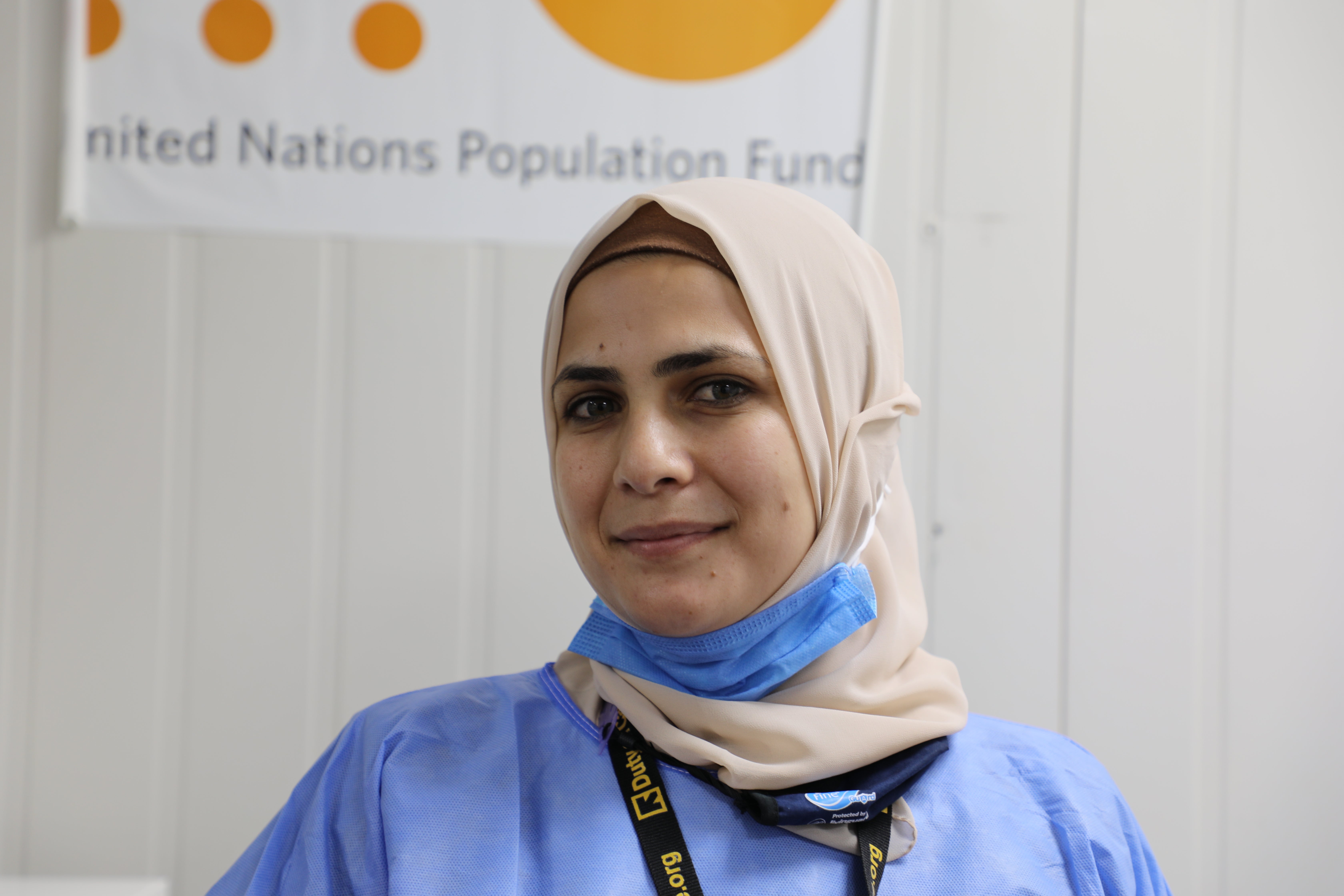
As the COVID-19 pandemic strains the availability of essential health-care services across the world, midwives are on the frontline saving lives. Yet the pandemic brought severe challenges, one of the major challenges was the suspension of transportation, which made it much more difficult for Rahma and her colleagues to get to work.
For two consecutive weeks, Rahma was the only midwife providing services in a camp of 50,000 people, over half of whom are women. She used to walk for more than two kilometers, carrying her nine-month-old baby and holding the hand of her three-year-old daughter, dropping them off at a home-based nursery on the way and picking them up after her shift was over.
“Satisfaction in the eyes of the women I support, makes me realize how much they are in dire need of the services we provide. I then forget all about the challenges I face.” adds Rahma.
A midwife passionate for change
Aldodawa has worked as a midwife in West Darfur in Sudan for over 25 years. She was inspired to become a midwife when she witnessed a maternal death in her community: “When I was 13 years old, my neighbour passed away while giving birth. I vividly recall her screaming for days. It was devastating when she died, I felt there was definitely a better way to handle this and much more to be done in this field.”
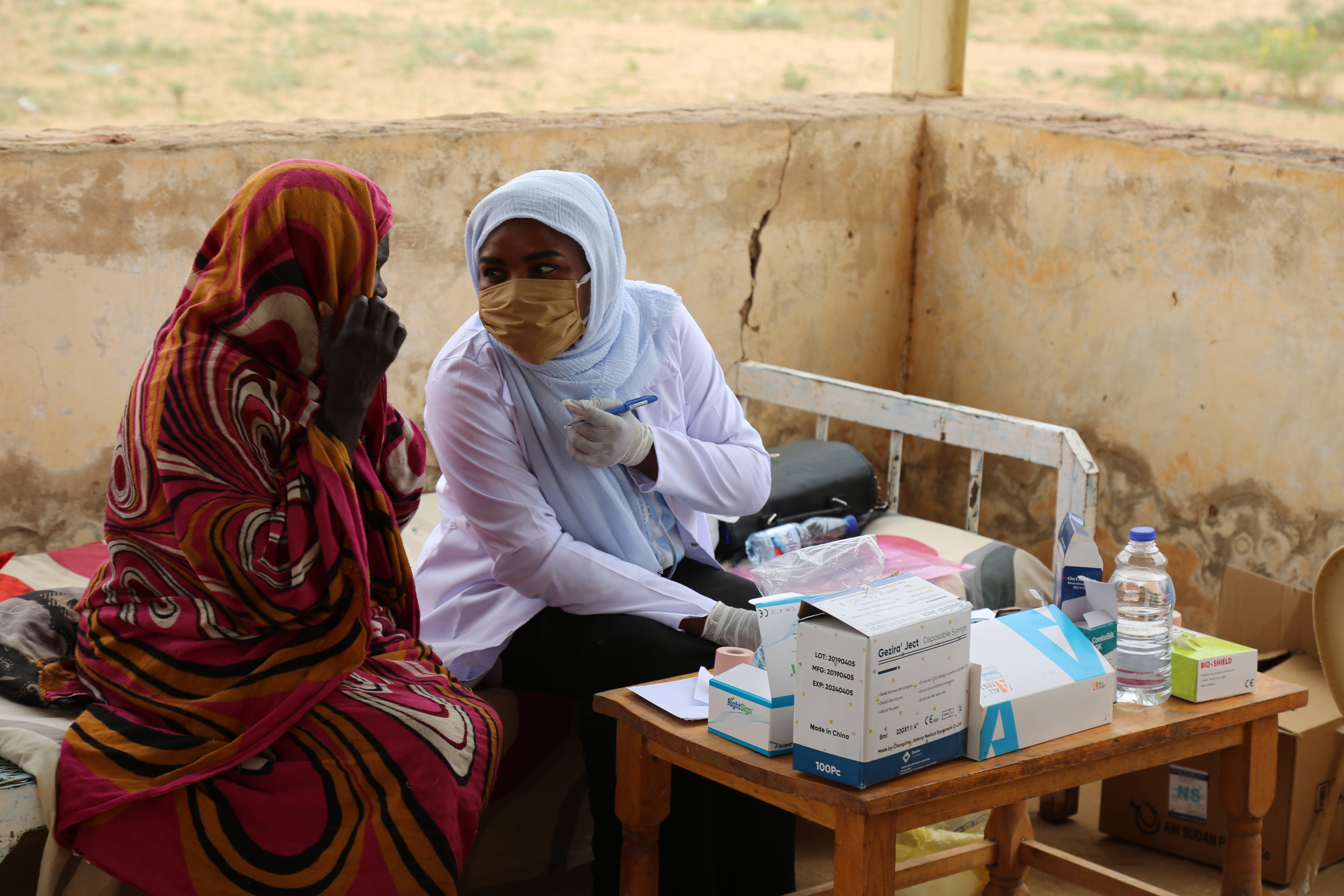
When conflict broke out in May 2021, Aldodawa started working at a UNFPA-supported clinic in the Kaga camp for Internally displaced persons. Since then the clinic has provided sexual and reproductive health services to over 1300 women and girls. Her energy and joy has contributed to building a relationship of trust with the community, with the result that women come from all over West Darfur to receive care from her.
Midwives bring hope during difficult times
Lena Al-Shurmani isa, Yemeni midwife who’s a part of a mobile outreach team that provides integrated reproductive health services. She focuses on vulnerable, displaced families living in camps and humanitarian settings who are unable to access health services. Lena remembers meeting Abia*, 15 years old and eight months’ pregnant, at Al Mawa camp. “I was really concerned about her, she had a prolapsed uterus and was severely malnourished.” explains Lina.
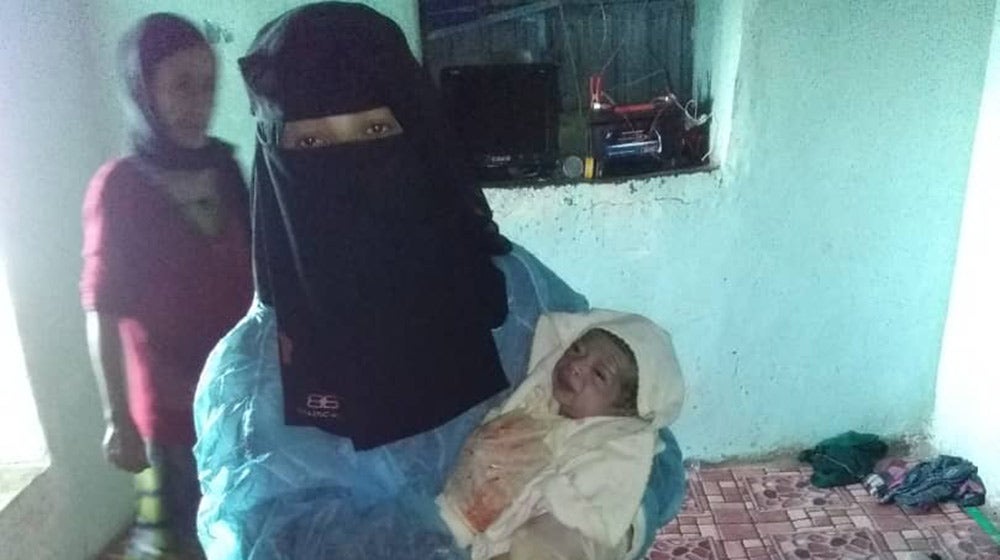
Lena’s concern was well founded. When Abia went into labour, she began bleeding profusely. The family did not know where to find a hospital, and even if they had known, they could not afford to travel. Abia’s husband sought Lena’s support late at night. Abia lost consciousness many times during her labour, but Lena successfully managed to bring the bleeding under control, and Abia gave birth to a healthy baby. “I am very grateful to the midwife. She traveled far in the middle of the night to save my life and my baby.” said Abia.
A midwife at the heart of the pandemic
During COVID-19, hundreds of midwives have been working tirelessly to prevent maternal deaths and deliver babies safely in health centres, hospitals, homes and humanitarian settings. Fardoussalgueh Mahamoud is a midwife who works at Cheiko hospital in Balbala, Djibouti. Her work has been severely affected when the COVID-19 swept our world “The pandemic seemed far away to me when I saw it on TV, but when the first cases were detected in Djibouti, my concern increased. Despite the considerable risk of infection and the protection measures, I continued to work as usual.” said Fardoussalgueh.
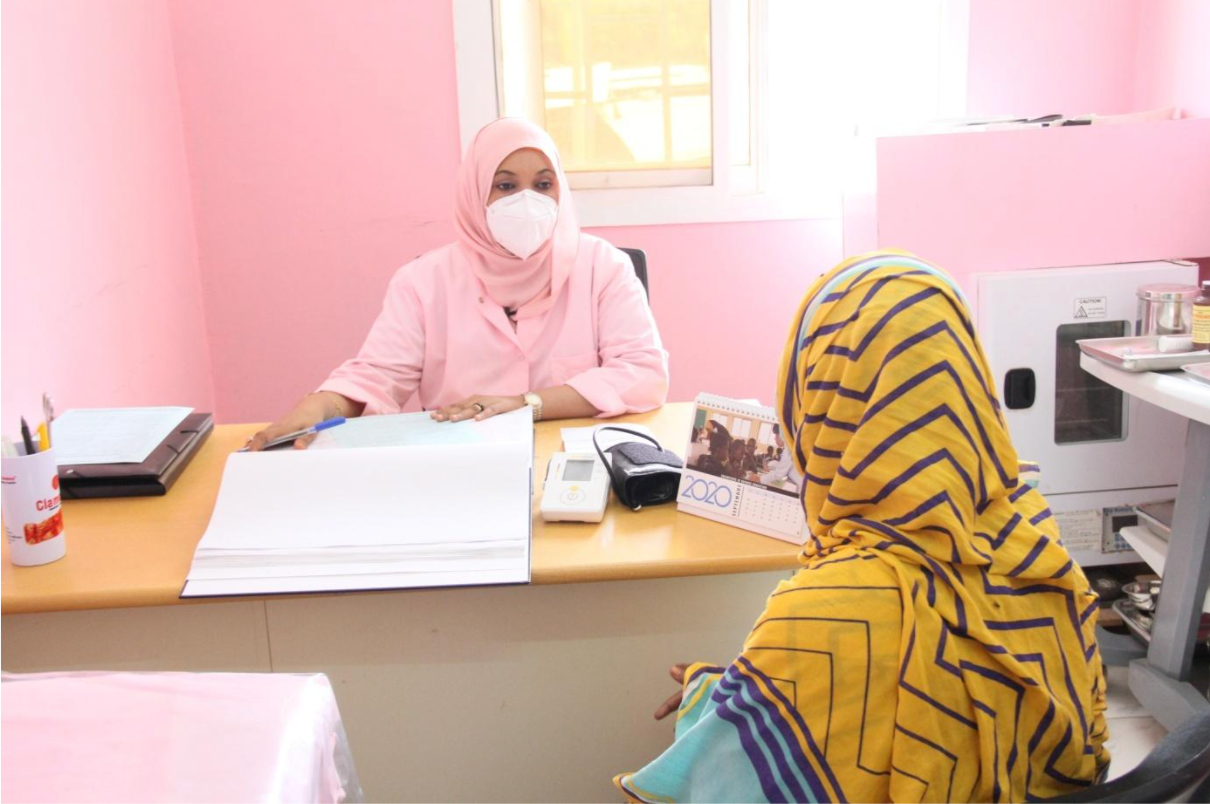
Despite her strong will to continue providing life-saving services, the hospital was not well equipped to deal with the cruelty of the pandemic. “What stressed me most is that we did not have COVID-19 safe services for pregnant women, yet with UNFPA support we established a secure unit for women to give birth during the pandemic, which helped us enormously.” she says.
All these stories emphasize the importance of reproductive, maternal, newborn, child and adolescent health services being well prepared for all crises and health emergencies.
Midwives save lives but for them to achieve their life-saving and life-changing potential, greater investments are needed in their education and training, midwife-led service delivery, and midwifery leadership. Governments must prioritize funding and support for midwifery and take concrete steps to include them in health policies and programming.

